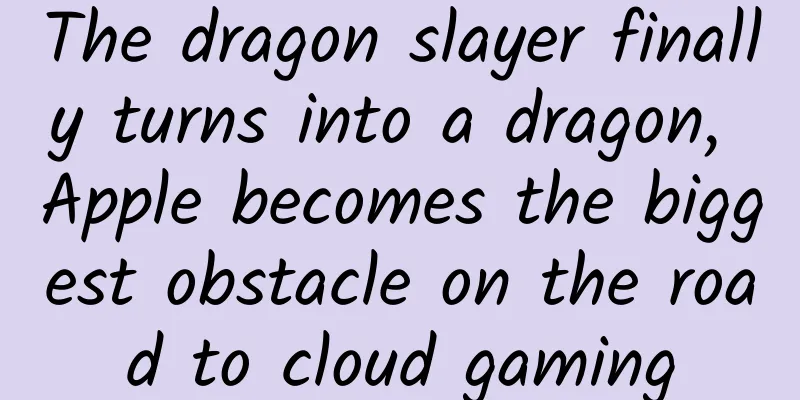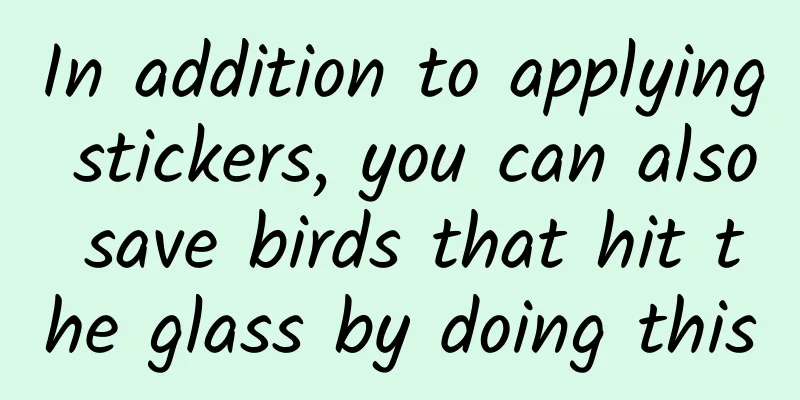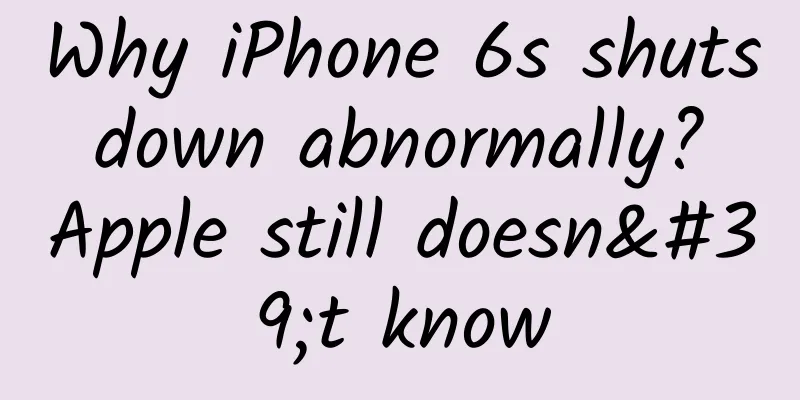The dragon slayer finally turns into a dragon, Apple becomes the biggest obstacle on the road to cloud gaming

|
As the company with the highest market value in history, Apple has always had the composure to remain calm even when faced with a catastrophe. Firstly, Apple has powerful weapons such as iPhone and AppStore, and a pair of wireless earphones can generate revenue at the same level as Xiaomi; secondly, Apple has trillions of cash flow in its pocket, so it is naturally strong. Apple has always stood at the crossroads of humanity and technology, and its fans are even more devout than those of Falun Gong followers. "Apple" and "Huawei" are also two famous "powder kegs" in the mobile phone circle on the Zhihu platform, attracting a large number of "Zuan" fans to debate every day. In the past, Apple has always had the image of a white lotus, with both its products and public relations being flawless. However, facing the aggressive cloud gaming, Apple finally showed its fangs. Subscription-based games are a waste of money after all Game revenue has always been an important source of Apple’s “sleeping income”. It is not an exaggeration to say that it is an important barrier for Apple’s ecosystem to attract new users and retain old users. From the past when excellent games such as "Plants vs. Zombies" and "Infinity Blade" were exclusive to Apple, to now when Apple and Android have the same games on different servers, games have provided strong user stickiness for Apple's iOS platform. In terms of revenue, according to data disclosed by Apple, App Store's global sales in 2019 were US$519 billion, of which US$106 billion came from digital product services and in-APP advertising marketing, most of which came from game sales and advertising services. If AppStore is taken out alone, it can also enter the "Fortune 500" in the United States, ranking 64th, between Cisco and Morgan Stanley. But unfortunately, the number of games in Apple's AppStore is constantly breaking the lower limit. On the one hand, high-quality stand-alone mobile games are rapidly disappearing, and stand-alone games have become a happy home for pop-up ads. In 2019, in-game ads alone provided Apple with $19.8 billion in revenue; On the other hand, the operating model of free games and paid props has made mobile games wear the hat of "krypton fraud". Drawing cards and opening boxes are nothing more than a perfect simulation of the dopamine secretion curve in a gambling scenario in the minds of gamers. Players can clearly feel that mobile games are becoming less attractive. Even a match-3 game that is as simple as it can be will have an ad pop up after you clear a few lines; and the higher your score, the more often the ad pops up, because it knows that your "sunk costs" are rising. What a terrifying insight into human nature! Of course, players will eventually come to their senses. If a game can’t make people happy, what’s the difference between it and salted fish? Mobile games, no; console games, yes! Reflected in the data, the growth rate of AppStore developer revenue is slowing down. In 2019, Apple paid $35 billion to app developers. In 2018, the figure was $34 billion, so the increase last year was only 2.9%. The increase the year before was 30%. Apple certainly sensed the danger earlier than we did. At the spring new product launch conference on March 26, 2019, Apple launched the game subscription service Apple Arcade. At $4.99 per month, you can take home mobile games with no in-app purchases and no ads. Apple spent 500 million US dollars on the Apple Arcade platform, bought the short-term loyalty of game companies such as Sega, Ubisoft, Capcom, and Konami, and promised users to launch 4-5 new games every month. However, in essence, this subscription system is nothing more than a buyout game with a layer of development and operation norms imposed on it. The gaming industry is always competing with content. Several well-known game companies came to Apple Arcade to check in and take photos, symbolically leaving behind two low-quality works, and then collectively returned to their own game console battlefields. Apple Arcade has been open for a year, but Apple has long broken its promise of "4-5 games per month". The lineup of only more than 100 games is a bit shabby, and the fact that there is no hit game is a slap in the face of the "subscription system". Facts have proven that it is better to try your luck in a bigger world than to work in Apple Arcade and earn a salary. Apple Arcade game updates are getting slower and slower, and the "exclusive" that was once promised has also been declared invalid. It is safer to go your own way when disaster strikes. What's even more embarrassing is that a previous report from Sensor Tower showed that after the launch of Apple Arcade, the paid mobile game market on the iOS platform not only did not see an increase in revenue scale, but even the release of new games declined significantly. Apple Arcade "is diverting a limited number of high-quality paid mobile games", which is probably something Apple did not expect. In this eventful year, while Apple was still fighting on the front line, a fire suddenly broke out in the backyard. The dragon slayer grew scales As we all know, Apple basically charges a 30% "Apple tax" for games listed on the AppStore. This is not unreasonable because platform maintenance itself requires costs, and the 30% ratio is also an industry practice. Of course, many domestic application distribution channels do not have such high bargaining power, so many times noble Apple users will need to pay 30% more than Android users when buying iQiyi membership or in-game purchases. In order to protect the 30% interest, Apple has set strict rules that iOS game data cannot be used with Android. However, Apple is also a person who treats people differently, and it can make exceptions for big games from powerful developers such as Blizzard's "Hearthstone" and Tencent's "Clash of Clans". While Apple hopes that game developers will work hard and make more high-quality games, game developers are thinking of imposing a 30% "Apple tax". On August 13, Epic Games updated its popular game "Fortnite". In the new version, Epic cunningly provided a payment channel that bypasses Apple's in-app purchase IAP, and put it together with Apple's in-app purchase prices. The difference between $9.99 and $7.99 was right in front of you, as if accusing Apple of being unscrupulous. Apple responded quickly and removed the troublesome "Fortnite" from its App Store. Because iPhones can only install software through the App Store, "Fortnite" was cut off from the game. Under the banner of "slaying the dragon", Epic used public opinion to put pressure on Apple, while at the same time hiring former US judicial antitrust chief Christine Varney to sue Apple for suspected monopoly. Epic also creatively spoofed Apple's classic advertisement "1984". In the original ad, the heroine, who represented Apple, broke the monopoly of "Big Brother" IBM and launched the Macintosh computer; In the Epic version of "1984", the apple is replaced by a female character from "Fortnite", and the broken "Big Brother" is an apple with a worm in its brain. Epic hoped that Apple would come to the table to discuss the issue of in-game purchase revenue sharing, but Apple, which has always been gentle and polite, directly overturned the table. Apple announced that it would terminate Epic Games' developer account on August 28. This seemingly insignificant punishment was no less severe than being excommunicated by the Pope in the Middle Ages. Simply put, from the development environment, once Epic's developer account on Mac is blocked, Unreal Engine will not be able to update on the App Store on Mac, and there may be problems with the Mac development certificate calling the keychain to package IPA. If the confrontation continues to escalate, Apple may further restrict or even ban the operation of games developed with Unreal Engine on iOS. After Apple directly turned the tables, Epic immediately panicked and switched from being an attacker to a defensive player. Through legal procedures, the court finally ruled that Apple could not ban Epic's developer account because Apple should not involve developers and other third parties in the dispute. After Apple played this trick, it seemed to have confirmed its identity as the "unjust party" and was condemned by a large number of software developers and players. Many large companies, such as Samsung, Microsoft, Spotify, Basecamp, TapTap, etc., have stood on Epic's side. In the end, Apple was forced to make concessions and allow small businesses that were forced to conduct paid activities online through the Facebook App due to the COVID-19 pandemic to avoid paying Apple's 30% commission on App Store transaction revenue, in addition to game creators. However, the exemption period for this Apple tax is only three months, that is, until the end of this year, and it will be collected again in 2021. The reason why Apple's AppStore can collect 30% "toll" with peace of mind is because Apple has achieved an absolute monopoly on the application distribution channel. The removal of "Fortnite" can completely cut off Epic's idea of distributing and updating games. However, Apple likes to use the concept of "13.3% share of the mobile phone market" to replace the fact that it has "100% of the application distribution channels in the iOS ecosystem." In the final analysis, the "tolls" of app distribution platforms such as AppStore are becoming less and less popular with developers. In fact, this is because in the era of mobile Internet, app stores are all "inflated". Compared with ten years ago, the number of users that app stores can bring to users has changed dramatically, and more and more developers feel that the value of the platform is not worth the 30% commission. What's even more painful for Apple is that Epic is not the only thorn in its side, and the challenges facing the App Store are not just the revenue sharing ratio. As long as they want games, not the cloud, Microsoft and Apple face off In the confrontation between Apple and Epic, Spencer, head of Microsoft's Xbox department, even personally submitted a testimony to the Oakland Court in California to support Epic. In fact, Microsoft has a deeper feud with Apple. On September 15, Microsoft's long-planned cloud gaming service Project xCloud was officially launched, supporting Android devices but not iOS. It’s not that Microsoft was lazy and didn’t adapt to Apple devices. According to Microsoft, Microsoft has been testing cloud games on iOS since February 15 this year. Through Microsoft's cloud gaming service Project xCloud, Microsoft can enable all iPhone phones to play large-scale Windows games without obstacles. However, on March 26, media reported that Apple added strict regulations to the App Store, prohibiting gaming services that previously relied on streaming, and cloud gaming platforms are not allowed to be listed on the App Store. Not only Microsoft Project xCloud, but also cloud gaming platforms such as Google Stadia and Nvidia GeForce Now have all been rejected by Apple. The problem is that the reasons given by Apple were too ridiculous and aroused public dissatisfaction. Apple said that it restricted cloud gaming platforms from logging into the AppStore because it was difficult to review content updates on cloud gaming platforms in a timely manner. On the eve of the launch of Microsoft's cloud gaming platform, Apple urgently revised a series of rules regarding cloud gaming, seemingly loosening its cloud gaming policy and extending an olive branch to Microsoft. Apple's Review Guidelines 3.1.2(a) stipulates that games provided by streaming game subscription services (i.e. cloud gaming platforms) must be downloaded directly from the App Store, and their design should avoid duplicate payments by subscribers and should not disadvantage non-subscribing users. Apple said that as long as streaming games (i.e. cloud games) comply with all guidelines, they can be put on the iOS platform. For example, each game update must be submitted for review, developers must submit metadata for search, and games must use in-app purchases to unlock game features. All in all, Apple is still wary of cloud gaming platforms replacing the AppStore's application distribution status. Listing cloud games separately seems to be for the convenience of review, but in fact it still weakens the platform attributes of cloud gaming services. Apple also once again emphasized the uniqueness of Apple's in-app purchase channel. Microsoft believes that cloud gaming is essentially a streaming service, and the specific rules should refer to the operating models of streaming platforms such as music and video: Apple does not require the review of Spotify's music or Netflix's videos, nor does it require the launch of a separate APP for each song or series. As Microsoft puts it, this compromise "is a bad experience for users." The greatest value of Apple AppStore should first be to provide high-quality services to users, and then to collect 30% of the fees from users' payments. Taking advantage of 100% control over the channel to reap higher profits by refusing to provide services to users and refusing to provide platforms for developers is very "un-Apple" and very monopolistic. In fact, cloud gaming is a double-edged sword for Apple. On the one hand, cloud gaming platforms may weaken Apple's illegal status of applications, but on the other hand, PC games have a huge library of high-quality stand-alone game content, and cloud gaming can also guide PC game traffic to smartphones. Apple has no need to be wary of cloud gaming. A company that only cares about short-term interests, refuses to embrace the future, and goes against the trend of the times will not go far, no matter how glorious it is now. As a winner of Toutiao's Qingyun Plan and Baijiahao's Bai+ Plan, the 2019 Baidu Digital Author of the Year, the Baijiahao's Most Popular Author in the Technology Field, the 2019 Sogou Technology and Culture Author, and the 2021 Baijiahao Quarterly Influential Creator, he has won many awards, including the 2013 Sohu Best Industry Media Person, the 2015 China New Media Entrepreneurship Competition Beijing Third Place, the 2015 Guangmang Experience Award, the 2015 China New Media Entrepreneurship Competition Finals Third Place, and the 2018 Baidu Dynamic Annual Powerful Celebrity. |
Recommend
Let’s watch the sky together at night. This “star map” is so beautiful!
Your browser does not support the video tag (This...
Taobao no-source model overseas orders, single store monthly profit 10000+
Taobao no-source model overseas orders, single st...
Android uses Retrofit 2 to implement multiple file uploads
Some time ago, I translated Future Studio's R...
Change your wealth beliefs and live a rich life Lai Qiukai's wealth thinking upgrade course [Complete] Baidu Cloud Download
When you feel that your time is worthless, you ar...
Why is the moon always half-faced? What is hidden on the "other side" of the moon?
When you look up at the moon at night, do you fin...
Will a new round of Internet bubble come ten years later?
Alibaba 's initial public offering (IPO) will...
Xi'an high-end men's club, unexpected romantic experience
Xi'an Bath Club East Suburbs, South Suburbs, ...
In-depth information | The most comprehensive guide to Zhihu information flow advertising is online
As the largest knowledge sharing platform in Chin...
Aiti Tribe Stories (22): From fleeing from Beijing, Shanghai and Guangzhou to fleeing back to Beijing, Shanghai and Guangzhou
[51CTO.com original article] Sima Yu is Jiuge'...
How much does it cost to join the Changde Building Materials Mini Program? What is the price for joining the Changde Building Materials Mini Program?
How much does it cost to join the Changde Buildin...
For 0.002 grams of food, even fish can drive
Written by: Liu Fang Editor: HS Layout: Li Xuewei...
Nothing new under the dome? Why not look at the tech startup boom under the haze?
December 21st was the sixth day after Beijing lau...
B station up master-Luo Xiang talks about the operation methods of criminal law!
Speaking of "outlaw Zhang San", those w...
Landing page design tips for the education industry!
With the winter vacation approaching, the educati...
Stop buying blindly! Regarding "Double Eleven", check this reminder quickly →
Recently, the Beijing Municipal Administration fo...









